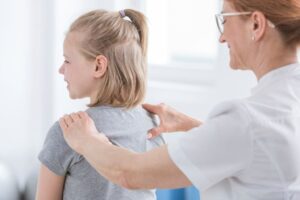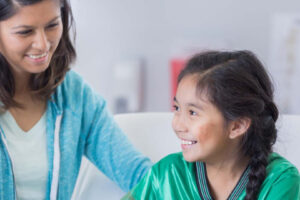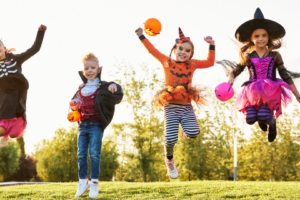By Alyssa Brennan, MOT
By this stage of the school year, children in first through third grades should be settled in their classroom routine. While some students are experiencing a full-day learning environment for the first time, older children are more acclimated into the educational and social structure of their environment.
Parents are eager to hear each day about their child’s progress academically and socially. We all want our children to flourish and have friends with whom they can enjoy the school experience. While academic progress and performance can be measured, social and emotional development can be more complex to assess. It can be confusing to ascertain if your child is developing socially on par with other students and building relationships with peers in line with development norms.
Typical social behaviors for first to third grade children
While children are completely unique in terms of how they interact and assimilate, there are some common milestones that children should be able to express on a regular basis between the ages of six- and eight-years-old:
- Can verbally express personal needs and emotions with others
- Demonstrates the ability to work with a partner and can take on both lead and follow roles.
- Expresses appropriate behaviors like happiness, sadness, fear or excitement
- During play, can easily participate in one-on-one or group activities
- Displays good sportsmanship and treats others with respect during play in non-stressful circumstances
- Can identify one or more “best friends”
- Shares food and toys with friends
- Is aware that the world extends beyond their own parameters and that other people have different perspectives, thoughts and feelings
- Is able to resolve conflict in socially-acceptable ways (talking things through, asking an adult for help); wants to resolve differences with others when there is a disagreement.
Social skills warning signs
If your child has not achieved most of the milestones listed above, or you have observed behaviors that are markedly different from other children in the same peer group, discuss these concerns with your pediatrician and determine if further evaluation and/or working with an occupational therapist might be recommended.
Generally speaking, potential warning signs include:
- Lack of emotional connection (if a child tells a sad story, sharing a relevant response or emotion)
- Limited verbal interaction or interest in other children
- Absence of interest or ability in developing and maintaining peer-to-peer relationships
- Continually expressing aggressive or combative behavior in normal social situations
As with any delay in pediatric development, prompt diagnosis and treatment are key to addressing any emotional or cognitive issues. By doing so, we’re providing children with a helping hand so they can be fully engaged in the social benefits of the elementary school experience.
Where to Find Help for Pediatric Development Issues
The OceanFirst Rehabilitation Center at CentraState Medical Center provides specialized services for infants, children and teens. Offering a full spectrum of diagnostic and treatment programs for physical and emotional developmental challenges, pediatric therapists and clinicians provide individualized care to help every child achieve their full potential. To learn more or schedule an evaluation, call (732) 294-2700 or visit centrastate.com/rehabilitation-physical-therapy-services.
CentraState’s new Social Skills Group, exclusively for children ages six to eight, is facilitated by an occupational therapist who will help to nurture your child’s external communications skills through play, sharing, social-emotional skills, problem-solving and fostering the ability to make new friends. Call (732) 294-2700 for more information and to register for the weekly group.
Alyssa Brennan, MOT, is on staff at OceanFirst Rehabilitation Center. She earned a bachelor’s degree in Health Sciences and a master’s degree in Occupational Therapy.





